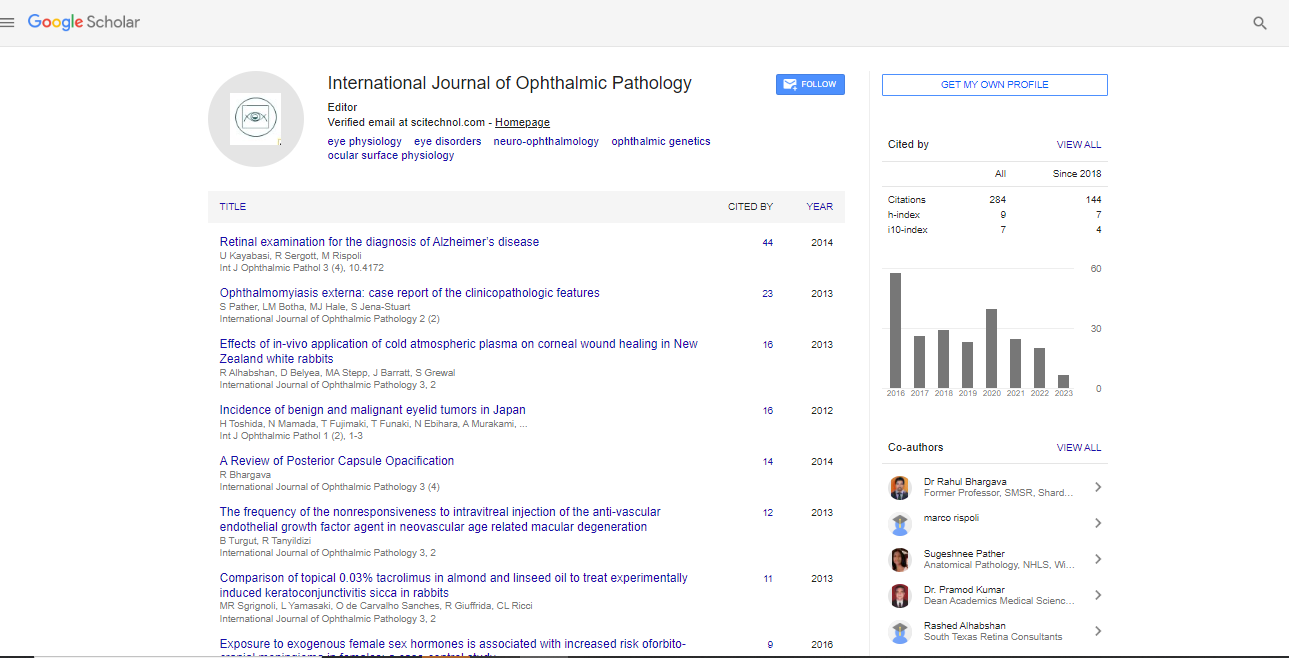Effects of Early Treatment of Retinopathy of Prematurity at a Tertiary Care Hospital in Saudi Arabia: A Retrospective Study
Enam Danish
Senior Pediatric Ophthalmology Consultant
: Int J Ophthalmic Pathol
Abstract
PURPOSE: To estimate the prevalence of retinopathy of prematurity (ROP) among high-risk neonates and to illuminate the benefits of early treatment in type 2 ROP (zone II, stage 3 without plus) and ROP milder than type 1 with pre-plus disease (zone III, stage 3). METHODS: This retrospective cross-sectional study was conducted among 307 high-risk neonates (614 eyes) with a gestational age of 32 weeks or younger at birth and a birth weight of 1,500 g or less, from 2011 to 2016. Treatment was initiated for neonates with low-risk type 2 ROP and ROP milder than type 1 with preplus disease, whenever retinopathy was evident for 3 clock hours with or without vitreous hemorrhage. Post-treatment progression was recorded. RESULTS: The prevalence of ROP in the current study was 33.71%. Two hundred seven eyes had ROP; 47.34% had mild retinopathy that did not require treatment, and 52.66% received laser treatment, including the early treated group. Of the 207 eyes with ROP, 46.86% had low-risk type 2 ROP disease and ROP milder than type 1 with pre-plus disease, and underwent photocoagulation therapy. After treatment, 15.38% and 10.71% eyes were stable, 84.62% and 88.10% eyes had regressed retinopathy, and 0% and 1.19% progressed in both groups, respectively. CONCLUSIONS: Early treatment of type 2 ROP and ROP milder than type 1 with pre-plus disease in certain cases significantly decreased the rate of progression to more advanced stages and resulted in good clinical outcomes. [J Pediatr Ophthalmol Strabismus. 2021;58(4):240–245.]
Biography
completed my German Ophthalmolgy board at the age of 29 years from University of Dusseldorf /Germany . postdoctoral studies in Pediatric fellowship from Royal Victoria Infirmary Hospital Newcastle / Neuro-physiology Training in Hospital for Sick Children Great Ormond Street London /UK 1996 .Working since then in King Fahd Armed Forces Hospital as Pediatric Ophthalmology Consultant with special interest in Genetic Hereditary Retinal diseases and Diagnostic electrophysiology . Member of Saudi Genetic Committee . KFAFH Program director of Saudi Ophthalmology Joint Training Program West Region SA
 Spanish
Spanish  Chinese
Chinese  Russian
Russian  German
German  French
French  Japanese
Japanese  Portuguese
Portuguese  Hindi
Hindi 